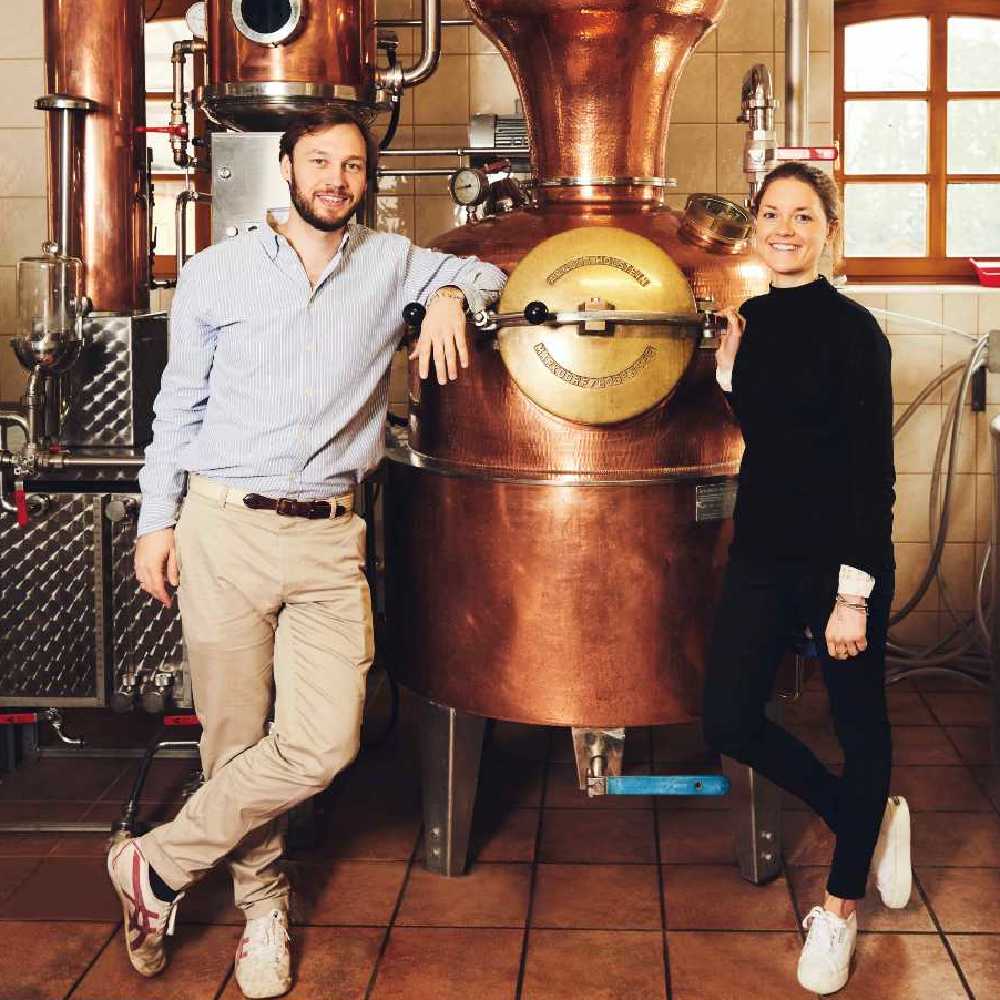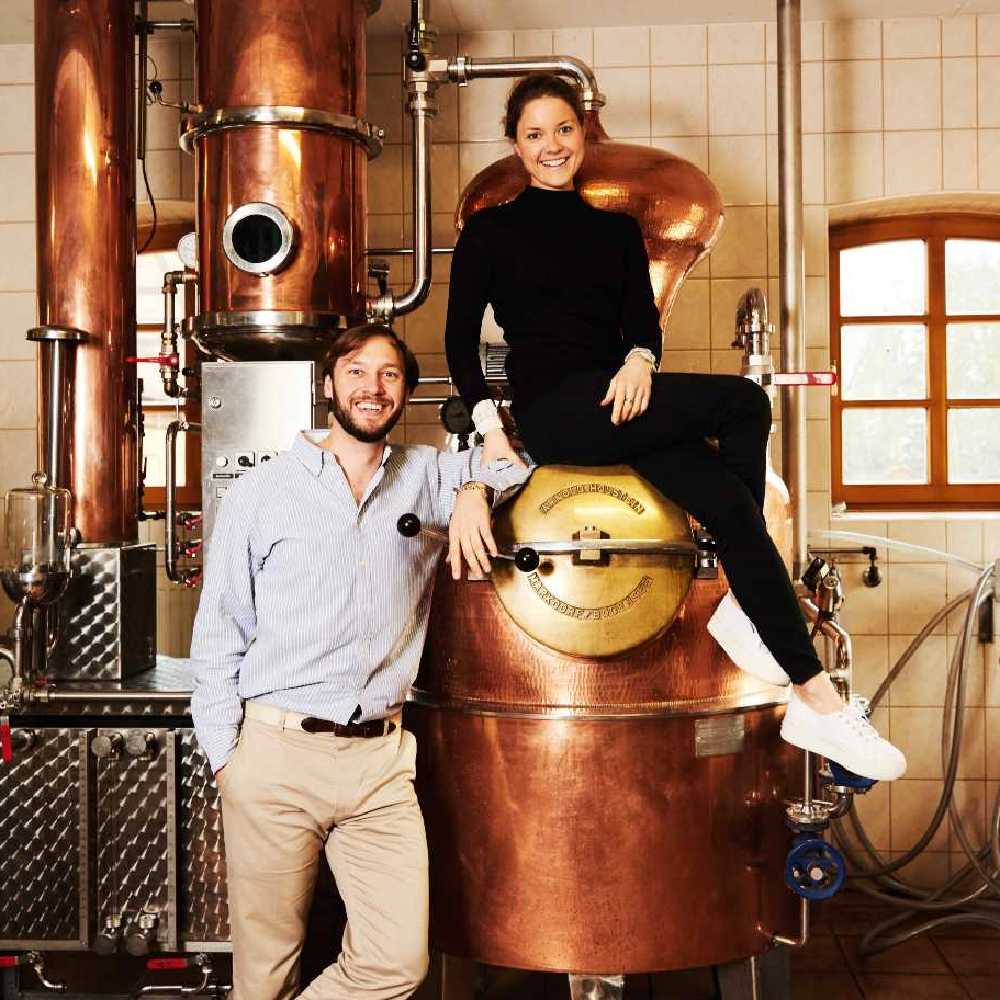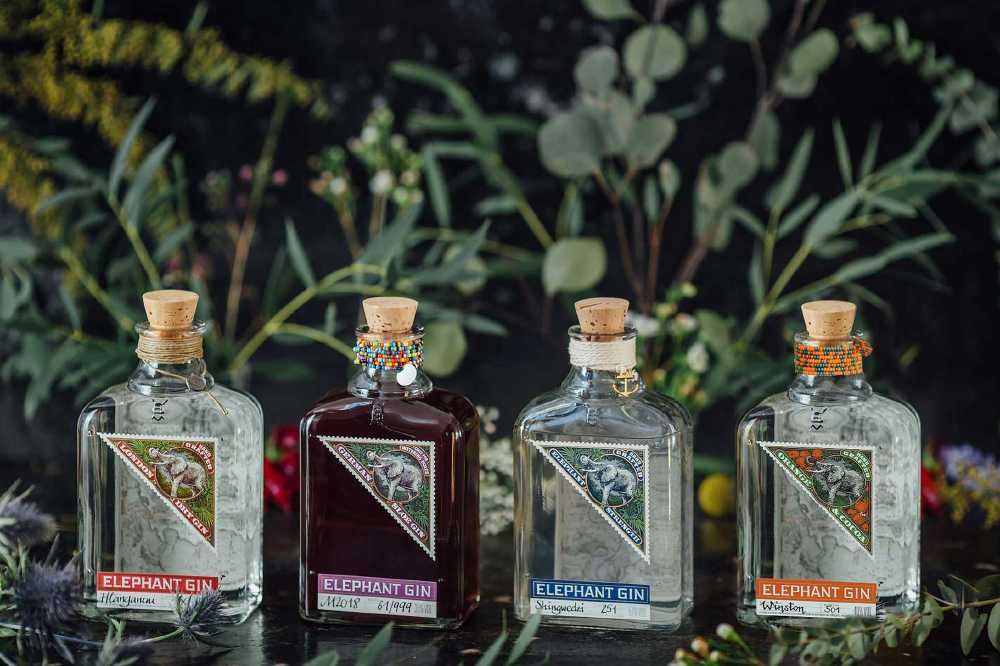New for Spring ’22, Elephant Gin have launched the Miniature Tasting Set and for every bottle sold, 15% of profits go directly to the Sheldrick Wildlife Trust who nurture orphaned elephants who have been found in the wild. We caught up with the founders of the brand to find out what inspired them to create their own gin with the elephant at its heart and why we need to act now on behalf of these animals before it's too late.

Elephant Gin founders
Please tell us about your adventures in Africa!
For those who have travelled in Africa and discovered the country even away from the big tourism, they know that Africa has something magical that is hard to describe but impossible to forget again. Even back in Europe, these experiences have not let us go and although we do not live in the countries, we always wanted to maintain the relationship with the people there and support their great work.
How did these travels inspire you to create your own gin?
The original idea was inspired by our travels through South Africa and Kenya - and especially the sundowner experience after a day out in the bush. The sundowner is celebrated as the drink during sunset overlooking the majestic African landscape and reminiscing all the beautiful nature and animals one has seen during the day. More often than not the drink comes in form of a gin and tonic.
This experience was paired with the findings of exotic botanicals that we had never come across Europe before and the wish to take these unusual fruits, roots and bush leaves back "home" and introduce and highlight them in a product that could be enjoyed by everyone. In gin we found the perfect product that allowed us to experiment with the oils of the botanicals and create a flavour profile unlike any other.
Why do you believe that our generation have a responsibility to protect African wildlife?
The gin however is not just about the gin itself. It carries a message that we like to spread as far as possible. Our generation has the responsibility to keep this planet intact and make sure that our children and children’s children are able to experience the same landscapes and wildlife we know today. We have dedicated our efforts to the African elephant - a most magnificent animal that has left a long-lasting impression on us during our travels.
Why is African elephant conservation so close to your heart?
Throughout our travels, I got involved with a foundation called Space for Elephants. I was immediately drawn in by the people I met and became passionate about the work they did. I had a particularly emotional experience with elephants during that time. I was able to see these animals in their full glory, but also witnessed those who were injured, dying, or killed at the hands of poachers. Having met the people who dedicate their lives to conservation made Robin and me realize that we have a responsibility to the generations to come. Since then, we have been determined to find a way to aid elephant conservation.Although we physically moved back to Europe, we still have strong feelings and emotions about our time in Africa. That’s how we came up with the idea for an African-inspired gin, when thinking about the ‘sundowner’ G&Ts we enjoyed on our trips. In the end, we set out to combine the spirit of Africa by using exotic African botanicals and German craftsmanship. We give back to what inspired us in the first place: 15% of bottle profits have been donated to African elephant conservation projects since the first bottle we produced.
15% of the sales of your miniature bottles got to Sheldrick Wildlife Trust, so please tell us about their work and why you chose them to donate to
The Sheldrick Wildlife Trust is known as the most successful orphan-elephant rescue and rehabilitation program in the world. Its elephant orphanage near Nairobi, Kenya nurtures orphaned elephants who have been found in the wild - often either left behind when their mother dies due to poaching or other human intervention. Each baby elephant has the support of a dedicated team to nurse them back to strength and to rear them in such a way that they can return to the wild when grown. With the launch of the miniature bottles we were determined to support this important wildlife foundation which is very close to their heart.
Each mini bottle also bears the name of one of the 25 elephants that Elephant Gin is currently a foster parent of.

Why are African elephants so vulnerable right now?
Elephants are facing three threats:
1. poaching - commercial trade in ivory.
Over the last 50 years, the population of elephants has declined drastically as more and more poachers hunted elephants for their ivory, which makes up the tusks. Even today, there are always finds of elephants killed for their ivory.
2. loss of natural habitatAfrica is experiencing tremendous population growth. Large parts of the elephants' range have fallen victim to cropland, pasture and infrastructure. Not only is the decrease in the total area of elephant habitat a problem, but also the fragmentation of ranges and lack of connections between populations. As a result, genetic exchange is decreasing. In addition, this fragmentation of areas makes it difficult for individual animals to migrate from particularly densely populated regions to less densely populated areas.
3. human-wildlife conflicts due to the increasing population and the consequent narrowing of elephant habitatsDue to the population increase in Africa, more and more farmland is needed and only island-like areas are left of the elephants' original grazing land. To forage, the pachyderms must migrate long distances and it is becoming more difficult to create safe corridors from one food island to another. The cultivation of crops such as corn in particular attracts elephants, which raid the farmers' fields again and again. Within one night, they can lose an entire year's harvest. In Kenya alone, more than 200 people have been killed in the last seven years. In turn, many elephants are also killed out of fear, revenge and precaution. In Kenya, the responsible authorities release around 50 to 120 so-called "problem elephants" for shooting every year.
If we do not protect them or find solutions to guarantee a co-existence of humans and wildlife the African elephants is in danger of extinction by 2040
Can you tell us something we might not know about elephants?
They are much closer to humans and more intelligent than one might think; for example, they communicate over several kilometers through ultrasonic waves, feed on different plants as needed, mourn the death of family members, can plan and execute strategic maneuvers (pull baby elephants out of the mud together when they get stuck), distinguish between "good" people and "bad" people or poachers, and send warning signals to other elephants accordingly.
Have you always loved elephants or was it a passion you developed after visiting Africa?
Even as a child, my favorite animal was the elephant. They are gigantic on one side and at the same time they are of such sensitive nature. Not without reason they are called "gentle giants". I love to watch them; their majestic movements, their unbelievably affectionate interaction with conspecifics, their intelligence, which is reflected in the most diverse facets.
Please tell us what is next for you and the brand.
We're happy about the 1 Million funding, the next step is the launch of EGF and Distillery.

Tagged in Africa

